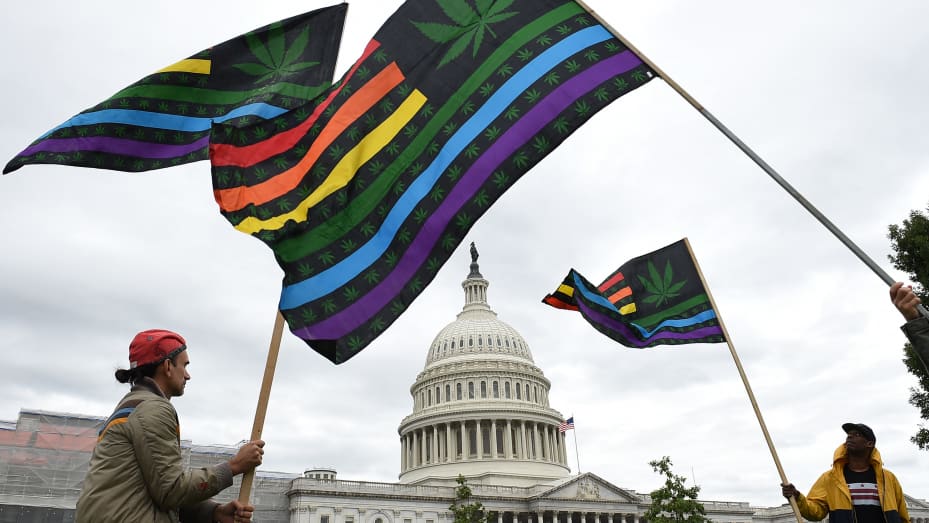On Wednesday, the Senate advanced a new bill that would grant the marijuana business access to banking services.
Last week, a bipartisan group of senators introduced the Secure and Fair Enforcement Regulation Banking Act. Banks and other financial institutions that provide services to state-permitted marijuana firms would be protected legally under the proposed legislation.
By a vote of 14–9, the Senate Banking Committee approved sending the proposal to the floor of the entire Senate.
Lead supporter of the bill and Democrat from Oregon, Sen. Jeff Merkley, termed the legislation’s passing a “historic moment” and a “example of significant bipartisan cooperation.”
“Forcing legal businesses to operate in all-cash is dangerous for our communities; it’s an open invitation to robberies, muggings, money laundering, and organised crime—and the only people benefiting from the current system are criminals,” stated Merkley in a statement.
He continued, “I am dedicated to creating bipartisan momentum to ultimately pass legislation that ends the cannabis black market and enhances public safety across the country.
Along with Majority Leader Chuck Schumer of New York, Steve Daines of Montana, Kyrsten Sinema of Arizona, and Cynthia Lummis of Wyoming are all leading the bill.
The senators said in a joint statement last week that the proposal “will help make our communities and small businesses safer by granting legal cannabis businesses access to traditional financial institutions, including bank accounts and small business loans.”
“It also prevents federal bank regulators from ordering a bank or credit union to close an account based on reputational risk,” they continued.
Despite marijuana being legal for either recreational or medical use in 39 states, the industry has had difficulty growing. Banking institutions are at danger because marijuana is classified as a Schedule I substance by the federal government, which means it has a high potential for misuse and no officially recognised medical value. As a result, there is less access to credit and a bigger market.
In addition, state-legal cannabis enterprises are compelled to run their operations entirely with cash, which increases the risk of robbery, money laundering, and organised crime.
Analysis from the MJBiz Factbook from industry news outlet MJBizDaily projects that by the end of 2023, combined U.S. medicinal and recreational cannabis sales will reach $33.6 billion thanks to the introduction of additional adult-use markets in various states.
The significant vote The legislation was initially discussed in the Senate on Wednesday. The SAFE Banking Act, a prior iteration of the law, was approved by the House seven times before, but it never made it past the Republican- and Democratic-controlled Senate. It was not included in a $1.7 trillion federal spending plan late last year.
If the package is presented to the GOP-controlled House, the road to passage might be more difficult.
“I think it probably passes the banking committee, but I think it doesn’t go anywhere in the House,” said Ian Katz, a Capital Alpha Partners analyst who specialises in banking and financials.
Republicans seem to be losing interest in it, he continued.
In the new bill, federal authorities are subject to more stringent rules that forbid them from closing any marijuana-related accounts without a “valid reason” or from refusing to provide banking services because of “personal beliefs or political motivations,” for example.

